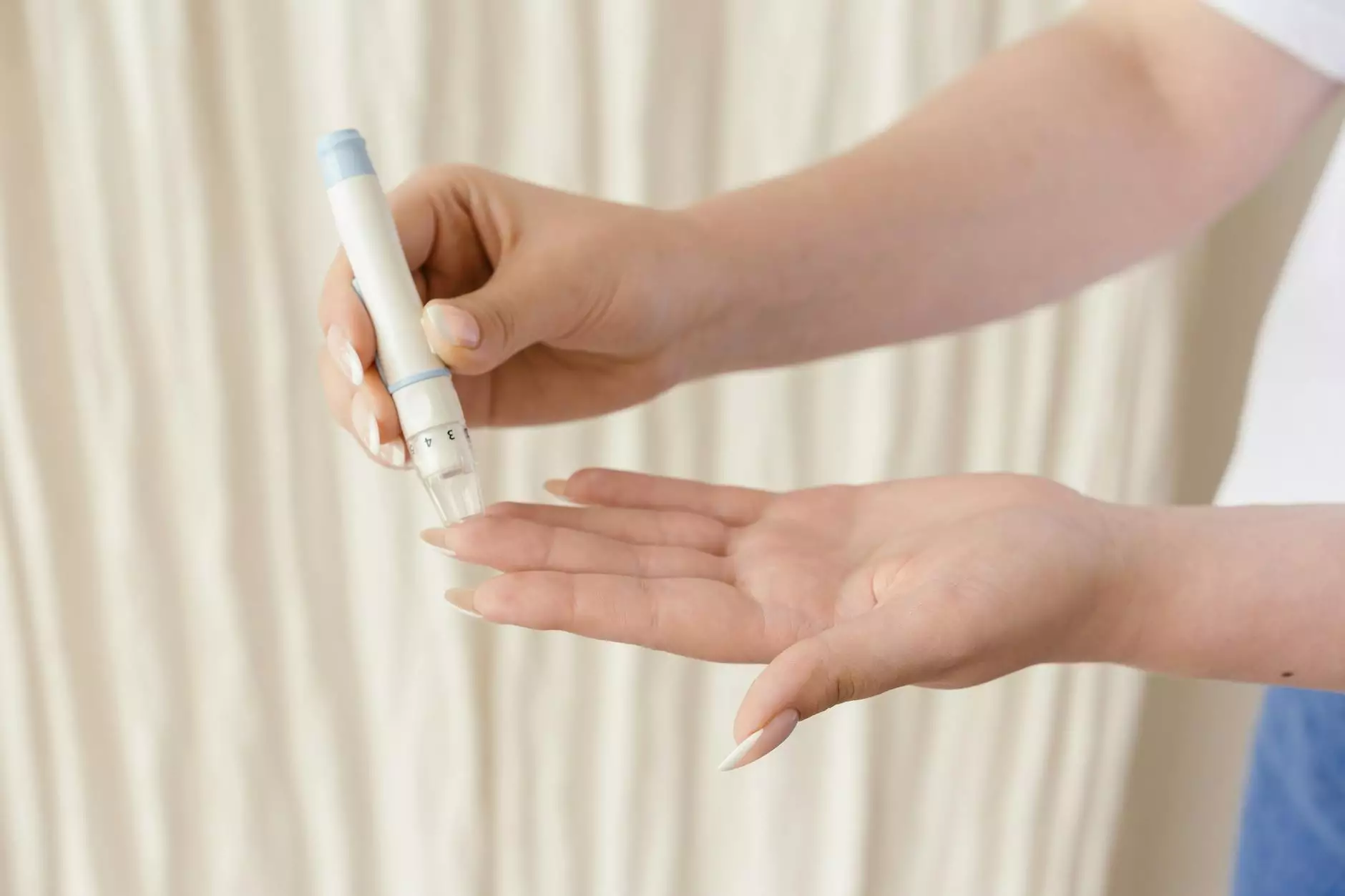Understanding Diabetes Pills: A Comprehensive Guide

Diabetes is a chronic condition that affects millions of individuals worldwide. Managing diabetes effectively is crucial for maintaining a good quality of life and minimizing the risk of severe complications. One of the primary methods used in diabetes management is medication, particularly diabetes pills. In this article, we will delve into the different types of diabetes pills, how they work, and their importance in controlling blood sugar levels.
What Are Diabetes Pills?
Diabetes pills refer to oral medications prescribed to help manage diabetes, specifically type 2 diabetes. These medications assist the body in utilizing insulin more efficiently, thereby keeping blood glucose levels within a normal range.
How Do Diabetes Pills Work?
Diabetes pills operate through various mechanisms, depending on their classification. Below are the main types of diabetes pills and their functions:
1. Sulfonylureas
Sulfonylureas stimulate the pancreas to produce more insulin. Common examples include:
- Glipizide
- Glyburide
- Glimepiride
By increasing insulin production, these drugs assist in lowering blood sugar levels effectively.
2. Biguanides
The most well-known biguanide is metformin, which works by lowering glucose production in the liver and improving the body’s sensitivity to insulin. This makes it one of the first-line treatments for type 2 diabetes.
3. Thiazolidinediones (TZDs)
TZDs (such as pioglitazone and rosiglitazone) help make the body’s cells more sensitive to insulin, enhancing glucose uptake and reducing blood sugar levels.
4. DPP-4 Inhibitors
Dipeptidyl peptidase-4 inhibitors, including sitagliptin and saxagliptin, work by increasing incretin levels. Incretins help regulate insulin secretion in response to meals, thus lowering blood sugar levels post-eating.
5. SGLT2 Inhibitors
These medications, such as canagliflozin and empagliflozin, prevent glucose reabsorption in the kidneys, leading to increased glucose excretion in urine.
6. GLP-1 Receptor Agonists
Although primarily available as injectables, there are oral formulations that also work by mimicking incretin hormones, leading to improved blood sugar control and weight loss.
Benefits of Diabetes Pills
Utilizing diabetes pills comes with numerous advantages, including:
- Convenience: Pills are easy to take compared to injections.
- Versatility: Multiple classes provide options based on individual health requirements.
- Improvement in Quality of Life: Proper management can lead to better overall health and wellbeing.
- Cost-Effective: Many diabetes pills are available at a lower cost compared to some injectable medications.
Risks and Considerations
Despite the benefits, it is essential to understand that diabetes pills may also come with side effects and risks. Common side effects can include:
- Gastrointestinal issues (nausea, diarrhea)
- Weight gain (with certain medications)
- Low blood sugar (hypoglycemia) in some cases
It is crucial to discuss these potential risks with your healthcare provider to ensure the chosen medication aligns with your health profile.
Importance of Consulting Healthcare Providers
Managing diabetes is not a one-size-fits-all approach. Different individuals may require specific medication tailored to their unique conditions. Regular consultations with healthcare professionals, including doctors and endocrinologists, are vital for:
- Monitoring Progress: Regular check-ups ensure that the medications are effective.
- Dosing Adjustments: Physicians can make necessary adjustments based on blood sugar readings and side effects.
- Comprehensive Care: Healthcare providers can offer advice on diet, exercise, and lifestyle choices that complement medication therapy.
Lifestyle Changes to Complement Medication
In addition to taking diabetes pills, integrating healthy lifestyle changes can significantly enhance the management of diabetes. Consider the following:
1. Healthy Eating
Adopting a balanced diet rich in whole grains, fruits, vegetables, and lean proteins can improve overall health and aid in blood sugar control.
2. Regular Physical Activity
Engaging in regular exercise helps in reducing blood sugar levels and improving insulin sensitivity.
3. Weight Management
Maintaining a healthy weight can lead to better blood sugar control and reduce the risk of diabetes-related complications.
Future Developments in Diabetes Medication
The field of diabetes management is continually evolving, with ongoing research leading to the development of new drugs and therapies. Future advancements may include:
- Novel Oral Medications: New classes of pills that could offer improved efficacy.
- Personalized Medicine: Tailoring treatments based on individual genetic and health profiles.
- Smart Pills: Medications that connect with technology for monitoring and dosage adjustments.
Conclusion
In conclusion, diabetes pills play a critical role in managing diabetes, particularly type 2 diabetes. They provide numerous benefits, including convenience and the ability to maintain blood sugar levels. However, it’s essential to use these medications as part of a comprehensive diabetes management plan that includes lifestyle changes and regular medical consultations. Continuous advancements in diabetes treatment promise a brighter future for individuals living with this chronic condition.
For more information on diabetes management and medication, visit klinische-apot.com.









